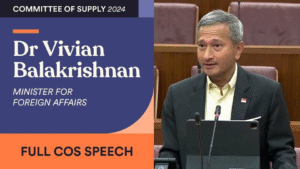Dr Ko Ko Gyi @ Abdul Rahman Zafrudin
China has firmly established itself as the kingmaker in Myanmar’s ongoing civil war, while the United States continues to show hesitation — almost a kind of geopolitical post-traumatic stress disorder (PTSD) — rooted in its past military failures in Korea, Vietnam, and Afghanistan.
Under the lingering “America First” mindset, Washington appears reluctant to get deeply involved in a conflict sitting on China’s doorstep. Its current approach is to test the water — imposing inconsistent and largely ineffective sanctions, offering half-hearted support to the National Unity Government (NUG), and avoiding direct confrontation with Beijing.
The construction of a new U.S. Consulate complex in Chiang Mai, Thailand, signals a regional intelligence and coordination hub aimed at countering China. In theory, this could strengthen support for Myanmar’s Spring Revolution. However, Beijing retains the upper hand: it maintains leverage over the junta, the Wa and Kokang forces, and several other Ethnic Revolutionary Organizations (EROs).
Meanwhile, Washington is cautiously probing cooperation with India, Bangladesh, Thailand, and the Kachin Independence Organization (KIO) — but these efforts appear too little, too late. U.S. attention and resources are already overstretched by the wars in Ukraine and Gaza, leaving limited bandwidth for Myanmar, where there are few strategic or economic gains beyond potentially disrupting China’s Yunnan–Kyaukphyu corridor — its crucial “Malacca bypass.”
There have been unverified reports that the U.S. has discussed with Bangladesh the possibility of establishing a humanitarian corridor in northern Rakhine. Some opposition sources have even speculated about contingency plans for no-fly zones or limited air-denial operations if atrocities and war crimes escalate. If ever realized, such measures might fall under the frameworks of the Quadrilateral Security Dialogue (Quad) or the AUKUS partnership (Australia, the UK, and the U.S.).
Washington’s caution also stems from bitter historical lessons. During U Nu’s time, U.S. involvement in Burma led to two major embarrassments that were later exposed publicly. The first was revealed through a formal complaint at the United Nations Security Council, complete with exhibits, detailing U.S. covert operations and the U-2 reconnaissance incident connected to Chiang Kai-shek’s Kuomintang (KMT) rebels in Shan State.
The second was when U Nu himself, upon returning from Thailand, held a press conference at the airport and disclosed the failed CIA–Thai operation. According to his statement, the CIA and Thai military had promised arms, manpower, and financing — using leftover munitions from the Korean War — but demanded that after defeating General Ne Win, a referendum be held allowing Shan State to secede and join Thailand. U Nu immediately rejected the proposal, went straight to the Burmese Embassy, contacted General Ne Win, and voluntarily returned to Burma to surrender.
Today, the U.S. faces similar complications. The NUG, the Arakan Army (AA), and many Bamar revolutionaries remain ambivalent — or even hostile — toward the Rohingya, weakening their claims to democratic and human-rights ideals. This inconsistency has made Washington hesitant to commit fully.
In contrast, China holds deep and flexible influence. It can finance, arm, or even insert troops under the guise of ethnic militias while securing its vast political and economic interests. The U.S., by comparison, finds its hands tied — lacking both financial incentives and strategic appetite to intervene decisively in a conflict offering little gain but enormous risk at China’s border.





